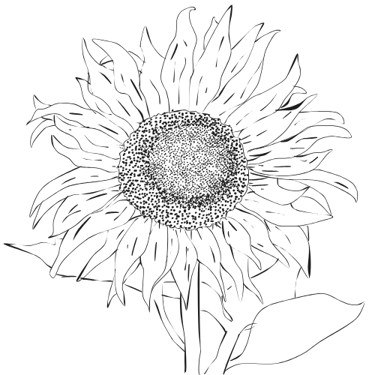Copper Tools in the Garden
Viktor Schauberger and an ode to the beauty and benefits of using copper tools in the garden.
Andrew Valenti
5/8/20244 min read
I first heard about the use of copper in agriculture while watching a documentary about water. It is a fascinating film about the life and work of Viktor Schauberger titled Comprehend and Copy Nature. (I’ve set the link to start at the moment they begin talking about copper and agriculture, but I highly recommend watching the whole film!)
Viktor Schauberger was an Austrian naturalist, forester, and innovator who was renowned for his work in water dynamics. When I visited his Wikipedia page I was only slightly shocked to see so little there and that there was an emphasis on him being a pseudoscientist. He was a brilliant man and left behind a vast legacy of discoveries, theories, inventions, patents, books, and a foundation. His work included an element of mysticism and spirituality at points, which is where I feel like he is now discredited. There is so much to say about this man, but I will get straight to his work in agriculture.
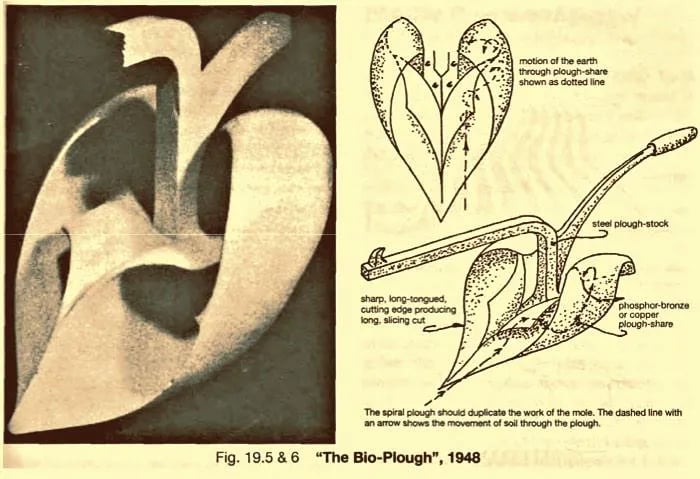

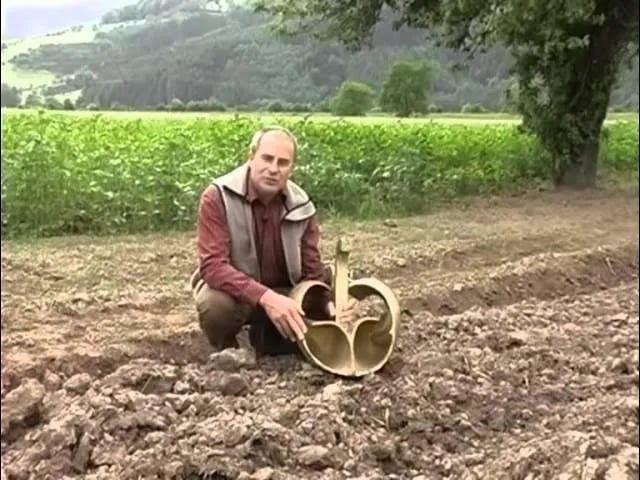

He was certainly on to something and he performed a series of field trials from the years of 1947–1949 (unfortunately not longer though). The trials were based on a comparison of using a copper plated plough vs. an iron plough.
In the trials, alternate strips of farmland were ploughed with each type. The results showed that the copper ploughed strips produced corn that were taller by about 6–8 inches and with fuller heads. They reported yield increases of up to 40% from the copper-ploughed strips compared to the steel ploughed ones in other crops. These findings were attributed solely to the use of copper as all other factors were constant in the trials (water, fertilizer, etc). This is all documented in Schauberger’s book, The Fertile Earth, which is a fascinating but admittedly dense read.
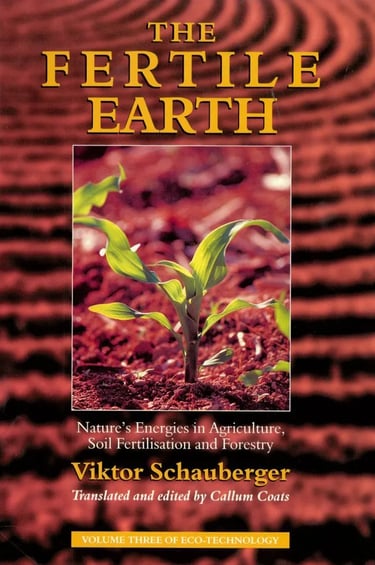

In the mid to late 1940’s, Schauberger discovered that there was a decrease in soil productivity due to the continued use of iron tools in agriculture. Now, there were several factors at play here that need to be taken into account: There was an increase in advancements in agriculture that we now know to be detrimental to the health of the soil - heavy ploughing and the introduction of chemical fertilizers and pesticides to name a couple of the heavy hitters. He also took note of the harm that conventional ploughing was causing and he invented a new kind of plough he called the bio-plough. This made it so that the topsoil was being turned and aerated, but in a way that the top of the soil was being placed back on top, rather than turned over. This is essentially a “no-till” way to actually till.
So why are we still using iron and steel in our soil?
Steel is much stronger than copper and any of its alloys. But I still think there is a place for copper in the garden and I absolutely love the copper tools I have. Well, they aren’t actually just copper, they are technically bronze tools. Bronze is an alloy of copper and tin, typically around 85%–95% copper and the rest tin. Bronze is much stronger than copper alone, which makes a huge difference when digging in the ground. See the video of me digging up an iris at the end of this post which proves the point.
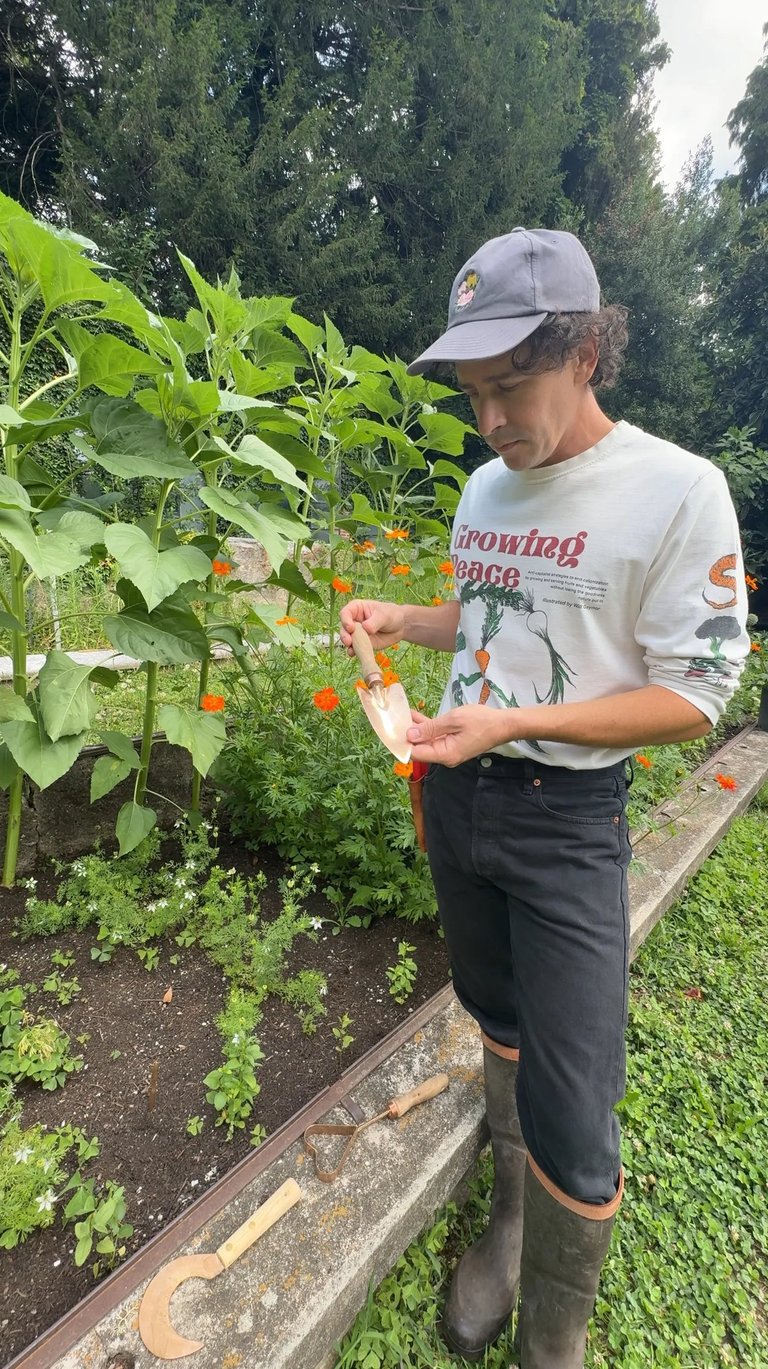

Here are some of the benefits broken down so you can consider converting some of your garden tools and then you can share this info with every gardener you know!
Deters Slugs and Snails
Copper naturally repels slugs and snails, even using the tools can leave trace elements in the soil to help deter them from getting your crops.Improved Soil Moisture Retention
Helps the soil retain water better, keeping your plants hydrated and reducing the need for frequent watering.Natural Antimicrobial Protection
Copper’s antimicrobial properties inhibit mold and harmful microbes, promoting a healthier garden environment.Enhanced Soil Fertility
Copper tools encourage beneficial microbial activity and improve soil mineral balance, leading to richer, more fertile soil.Durable and Long-Lasting
Copper resists rust and corrosion, so your tools stay sharp and reliable for many seasons. You can even leave them out in the rain! They will form a lovely and natural patina that makes them even stronger.Comfortable to Use
Copper goes into the ground easier than iron because there is less friction at play. Check out this clip here to see a copper vs. iron spade going in the ground.Higher Crop Yields
Field trials (like the 1948–49 Salzburg trials) demonstrated yield increases up to 40% compared to steel tools.Energy Harmonization in Soil
Viktor Schauberger believed copper tools enhance the natural “energetic” qualities of soil: improving water flow and nutrient cycles on a subtle, bioenergetic level.Environmentally Friendly
Copper is considered a "circular" metal because it can be recycled indefinitely without losing quality. An estimated 80% of all copper ever mined is still in use today!Attractive
Copper tools just look beautiful and why not have gorgeous garden tools?
So, where can you get copper tools?
I would be remiss to say I haven’t developed something of a relationship with the good folks at OJ Bron in Slovenia. They live in a town called Radovljica where a blacksmith there had been making copper alloy tools since before WW1 and they are highly influenced by the work of Viktor Schauberger as well. They have many years of experience in making a range of excellent garden tools and they even offer a 12 year warranty on them. I have a very small collection of their tools myself and you can see them all in action below. If you’re interested in purchasing their tools, the links I provided to them are affiliate links so I receive a small percentage of the sale, which is much appreciated by us all! They are a small but mighty production and their tools are absolutely fantastic. The wood they use is sustainably sourced as well as the quality of the copper alloys they use.
Gardens of Earthly Delight
Your source for sustainable living
Connect
